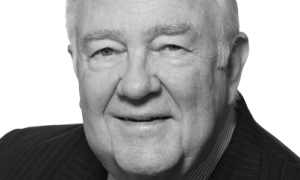For years, it has been the fashion in many ideological precincts to argue the collapse of the Soviet Union -- at more or less the moment it disintegrated -- was due almost entirely to Communism's structural weaknesses, and not to anything the West may have done to hasten its demise. In this view, while the two factions may have been at war for decades, the final result was not victory for one side so much as abdication by the other.
This misreading of history unfortunately is motivated most often by a desire to avoid giving President Reagan the credit he deserves for being one of the few Western leaders (Prime Minister Thatcher being a notable exception) to properly understand not just the weaknesses of the Communist system, but also how they could be exploited to hasten the demise of the Soviet Union and bring freedom to millions around the world.
Reagan's struggle against Communists in Hollywood during his acting days is frequently told as a story of an awakening awareness to the Soviet threat. It certainly was that, but what is too often forgotten is just how pivotal Reagan's role was in this fight, with one fellow actor describing him as "a one-man battalion of opposition." It is this same misconception of Reagan as an observer and diagnostician, rather than prime actor, that comes up again and again in arguments about his role and impact.
For three decades after he left Hollywood, Reagan studied Communism intensively, especially its theory, its aggressive expansionism and the threat it posed to the free world. From this study, Reagan developed a number of ideas beyond the then-dominant prescription of containment, to how the United States and its allies could combat and ultimately conquer a system he described while president as "another sad, bizarre chapter in human history whose last pages even now are being written."
Reagan never stopped speaking out on Communism, even when it was unfashionable to do so. He consistently decried the policy of detente, which had left unchallenged aggressive Communist expansion around the world. In the decade before Reagan become president, 10 new nations had come under Soviet domination, and Communism appeared to be on the march worldwide.
President Reagan also rejected the gloomy outlook of eternal accommodation and never wavered in his conviction that freedom would eventually triumph over totalitarianism. He came to office with the belief the United States and other free nations should use all aspects of political, military, economic, diplomatic and cultural power to defeat Communism. Once he got to the White House, he put those ideas into practice.
The biggest shake-up to the status quo was Reagan's military buildup, the largest "peacetime" defense expansion in U.S. history. Reagan's clear aim was to put the leaders of the Soviet Union on the horns of a dilemma. They could either watch the West achieve a dominant military and strategic position, or try to match the U.S. build-up, in turn bankrupting their own tottering economy.
Reagan showed the flexibility of his approach, coupling this massive buildup with an open invitation to reduce strategic arms on both sides. In Reagan's words to Mikhail Gorbachev, "We can agree to reduce arms, or we can continue the arms race, which I think you know you can't win."
Reagan also encouraged and influenced other free nations to join in this endeavor. His "Evil Empire" rhetoric, rejected by many commentators at the time as inflammatory and simplistic, instead helped clarify the distinctions between the two sides.
The president's most lasting rhetorical moment came during his second visit to Berlin in 1987, when he memorably urged, "General Secretary Gorbachev, if you seek peace, if you seek prosperity for the Soviet Union and Eastern Europe, if you seek liberalization, come here to this gate. Mr. Gorbachev, open this gate. Mr. Gorbachev, tear down this wall!"
This Monday, November 9th, marks the 20th anniversary of the fall of the Berlin Wall. The anniversary will be marked by celebrations, ceremonies and events around the world, including a conference hosted by the Reagan Foundation and Library and the Heritage Foundation in Simi Valley. At all of these events, we should pay tribute to the brave men and women who fought for freedom and justice on both sides of the Iron Curtain, but we would be remiss if we did not make a special note of thanks to President Reagan.
Edwin Meese III, the attorney general of the United States from 1985 to 1988, is Chairman of The Heritage Foundation's Center for Legal and Judicial Studies.
First Appeared in the San Diego Union-Tribune



